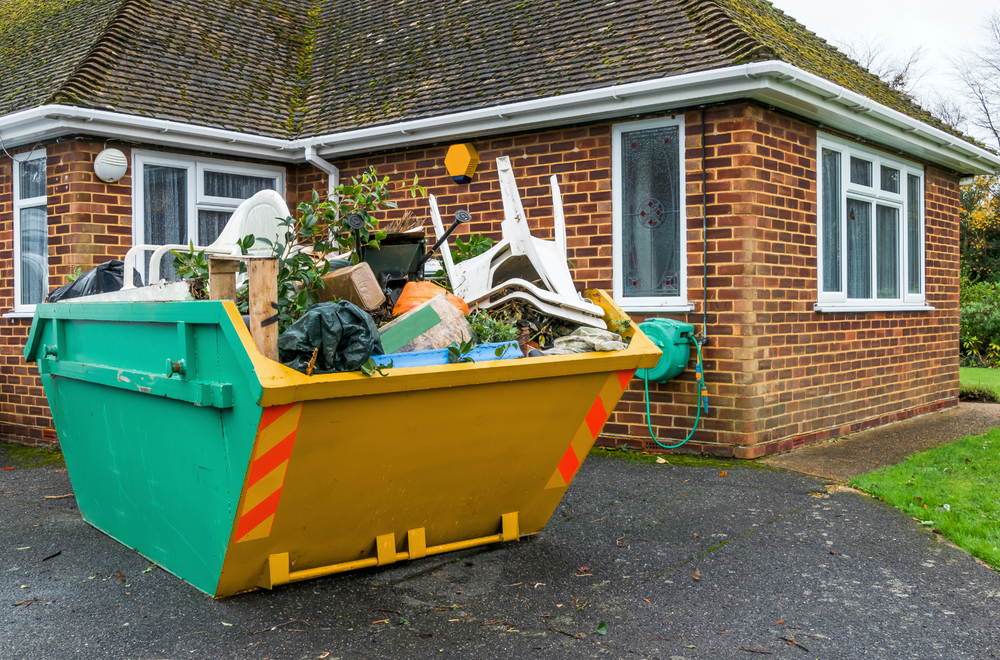Common Mistakes to Avoid When Hiring a Skip

Hiring a skip can be a straightforward solution for managing large amounts of waste, whether you're undertaking a home renovation, clearing out your garden, or handling construction debris. However, there are several common mistakes that people often make when hiring a skip. Avoiding these pitfalls can save you time, money, and hassle. Here are some of the most common mistakes to watch out for:
1. Not Choosing the Right Skip Size
One of the biggest mistakes is not selecting the appropriate skip size for your project. If you choose a skip that's too small, you might have to hire another one, increasing your costs. Conversely, a skip that's too large means you're paying for unused space.
How to Avoid It: Assess the amount of waste you expect to generate. Consult with your skip hire company—they can offer guidance on the best size based on your needs.
2. Failing to Check Permit Requirements
If you need to place the skip on a public road or verge, you'll likely require a permit from your local council. Not securing the necessary permit can lead to fines and your skip being removed.
How to Avoid It: Check with your skip hire company—they can often arrange the permit for you. Always confirm local regulations before your skip arrives.
3. Ignoring Skip Hire Restrictions
Not all types of waste can be disposed of in a skip. Items such as asbestos, batteries, electrical appliances, and hazardous materials are typically prohibited. Ignoring these restrictions can result in additional charges or your waste not being collected.
How to Avoid It: Familiarise yourself with the list of prohibited items. Your skip hire company can provide a detailed list of what can and cannot go into the skip.
4. Overloading the Skip
Filling the skip beyond its capacity is a common mistake. Overloaded skips are dangerous to transport and may not be collected by the skip hire company. This can result in fines and the need to offload excess waste.
How to Avoid It: Ensure that the waste does not exceed the skip's fill line. If you have more waste than expected, consider hiring an additional skip.
5. Not Considering the Skip Placement
Placing the skip in an inconvenient or inaccessible location can cause problems for both loading the skip and for its eventual collection. Think about access for the delivery truck and space for loading the skip safely.
How to Avoid It: Choose a flat, stable surface with ample access for the skip truck. Ensure there are no obstacles such as low-hanging branches or overhead cables.
6. Misjudging the Duration of Skip Hire
Underestimating the amount of time you need the skip can lead to rushed work or additional hire costs. Similarly, keeping the skip longer than necessary can incur extra charges.
How to Avoid It: Plan your project timeline carefully. Book the skip for a few extra days if you're unsure to avoid last-minute extensions.
7. Not Asking About Additional Charges
Some skip hire companies may have hidden fees for things like overfilling the skip, needing a permit, or disposing of certain types of waste. Not being aware of these charges can lead to unexpected costs.
How to Avoid It: Ask your skip hire provider for a detailed breakdown of all potential costs. Read the terms and conditions carefully to understand all fees involved.
8. Neglecting to Secure the Skip
Unattended skips can attract illegal dumping, where others dispose of their waste in your skip. This can fill your skip quickly and leave you responsible for additional disposal costs.
How to Avoid It: Cover the skip with a tarp when not in use, and consider placing it in a secure location. Inform neighbours and put up signs if necessary to deter unauthorised use.
9. Poor Waste Segregation
Mixing recyclable and non-recyclable materials or hazardous and non-hazardous waste can complicate disposal and lead to higher fees or rejected collections.
How to Avoid It: Separate your waste into different categories. Clearly communicate with your skip hire company about the types of waste you're disposing of to get specific instructions.
Conclusion
By avoiding these common mistakes, you can ensure a smooth and cost-effective skip hire experience. Proper planning, clear communication with your skip hire provider, and adhering to regulations will help you manage your waste efficiently and responsibly.
For more information or to book a skip, contact our team today. We're here to help you with all your waste management needs.
Author: Spencer Murphy
19 June 2024
Still have questions?
You can send us message, call or chat live with an expert for personalised advice.